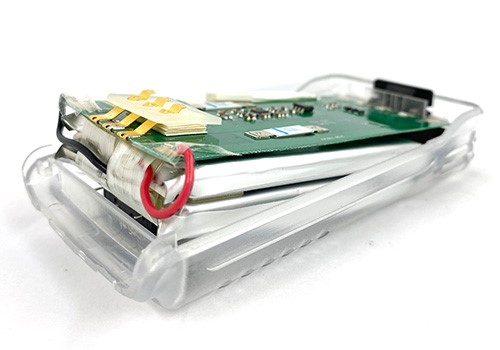Lithium-ion battery packs are widely used in many devices, from smartphones to electric vehicles. However, sometimes these batteries can become defective, which can affect performance and safety. Identifying a defective lithium-ion battery early can prevent potential issues and ensure that your devices run smoothly.
Signs of a Defective Lithium-Ion Battery
1. Physical Damage
One of the most obvious signs of a defective lithium-ion battery is physical damage. Look for any swelling or bulging on the battery pack. This can occur due to internal chemical reactions or overheating. Another indicator is visible cracks or dents on the battery. If you notice any of these issues, it’s important to replace the battery immediately to avoid further damage.
2. Overheating
If your li-ion battery packs get excessively hot during charging or use, it might be defective. While some warmth is normal, a battery that becomes too hot can indicate a problem. Overheating can be caused by a variety of issues, including poor manufacturing quality or internal damage. It’s important to stop using the battery if you notice it overheating to prevent potential hazards.
3. Short Battery Life
A significant decrease in battery life is another sign that a lithium-ion battery may be defective. If your device’s battery drains quickly or doesn’t hold a charge as long as it used to, it could be a sign of deterioration. This issue can arise from age, poor quality, or manufacturing defects. Replacing the battery with a new one from reliable lithium-ion battery makers can restore your device’s performance.
4. Inconsistent Charging
If your battery struggles to charge or only charges intermittently, it may be defective. Inconsistent charging can be caused by problems within the battery cells or issues with the charging circuit. This can result in erratic performance, where the battery may show a full charge but quickly drop in power. Checking connections and using a different charger can help determine if the battery is the issue.
5. Leakage
Battery leakage is a serious issue and a clear sign of a defective lithium-ion battery. If you see any liquid or residue around the battery, it’s important to handle it with care. Battery leakage can be dangerous and harmful, so it’s best to dispose of the battery properly and replace it with a new one from reputable lithium-ion battery makers.
How to Test a Lithium-Ion Battery
1. Use a Multimeter
A multimeter can help you test the voltage of a lithium-ion battery. Compare the measured voltage with the battery's rated voltage. A significant discrepancy can indicate a defect. For instance, if a battery is rated at 3.7 volts but measures significantly lower, it may be defective.
2. Perform a Load Test
A load test involves using the battery under a controlled load to see how it performs. This can help identify if the battery can handle the required power without dropping voltage unexpectedly. Performing this test can give you a better idea of the battery’s condition and whether it needs to be replaced.
When to Replace Your Battery
If you identify any of the signs of a defective battery, it’s time to consider a replacement. Using a faulty battery can lead to reduced performance and potential safety risks. Always replace defective batteries with new ones from reputable lithium-ion battery makers to ensure quality and safety.
Wrapping Up
Identifying a defective lithium-ion battery is crucial for maintaining the performance and safety of your devices. Look for signs like physical damage, overheating, short battery life, inconsistent charging, and leakage. Regularly testing your batteries with tools like a multimeter or load tester can help you catch issues early. For reliable replacements, consider sourcing your batteries from trusted lithium-ion battery makers. At Emerging Power, we provide high-quality solutions for your battery needs, ensuring that your devices stay powered efficiently and safely.

